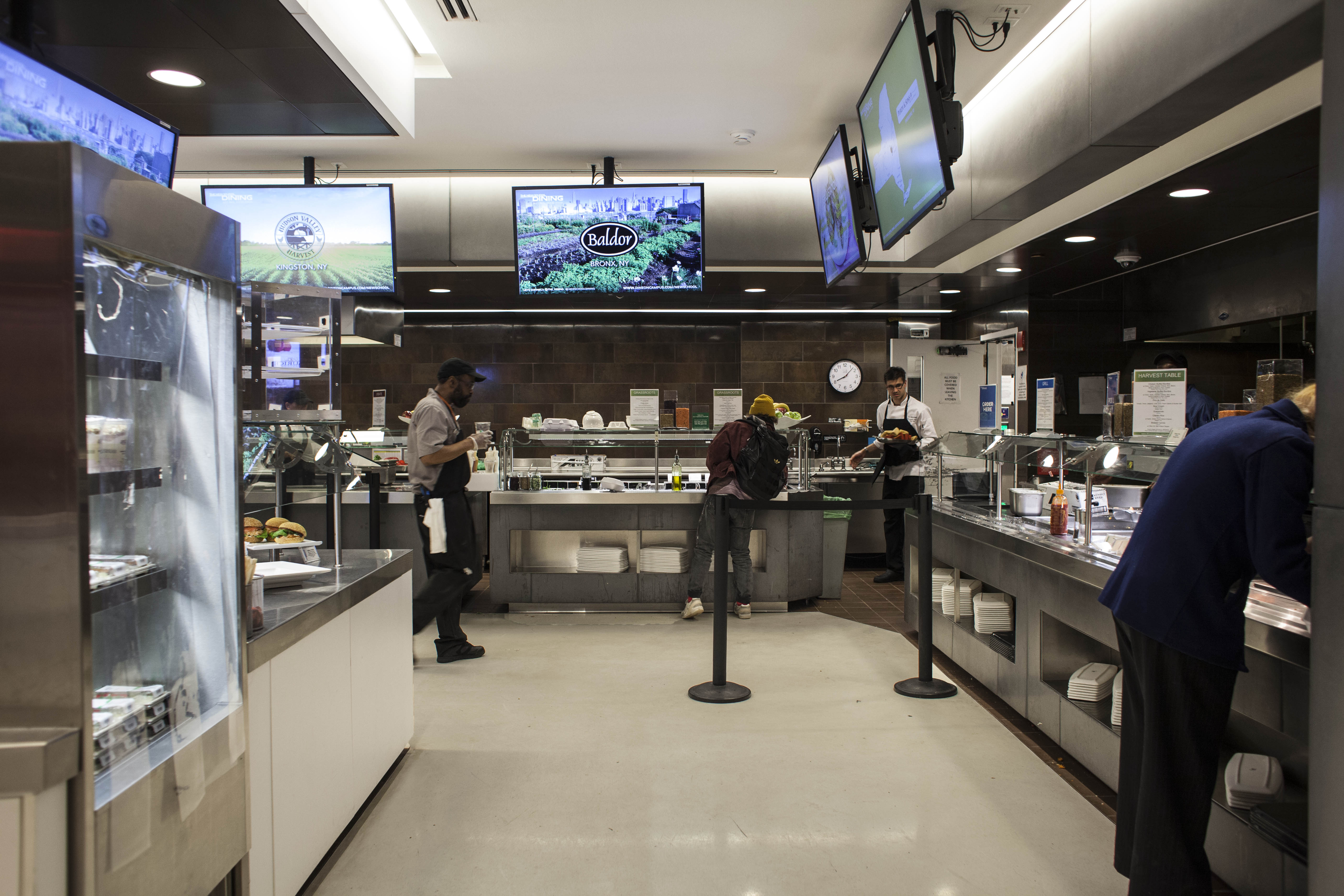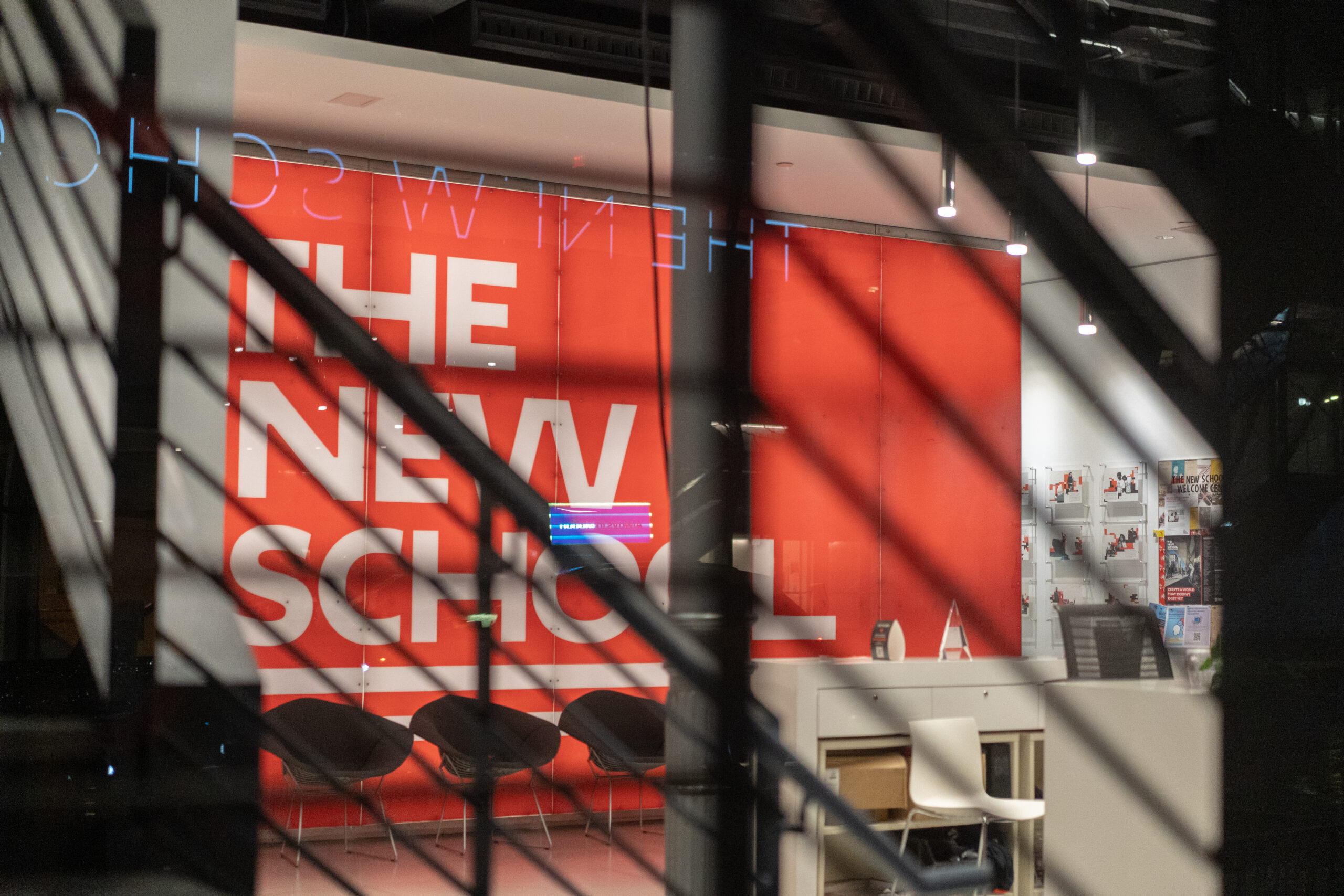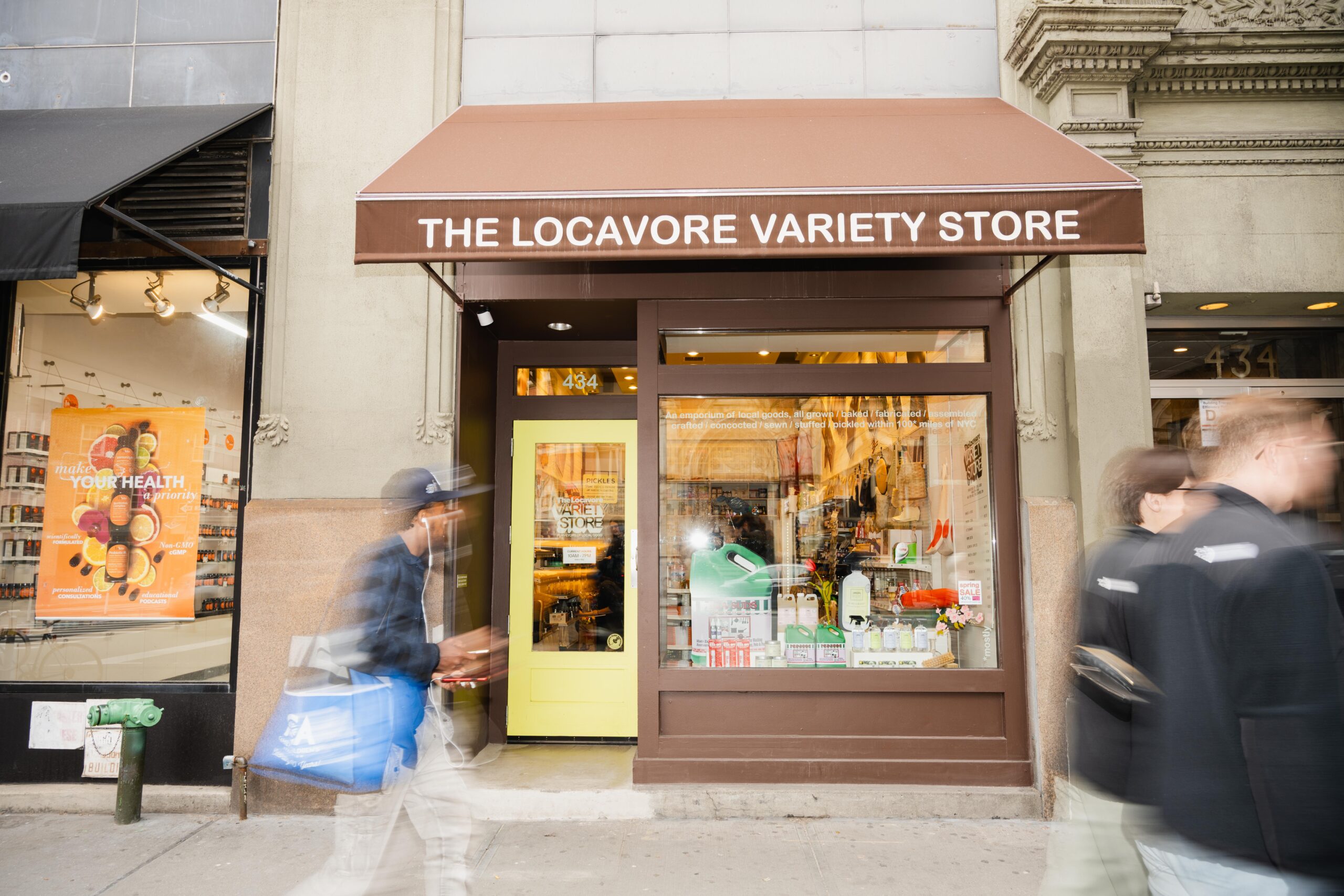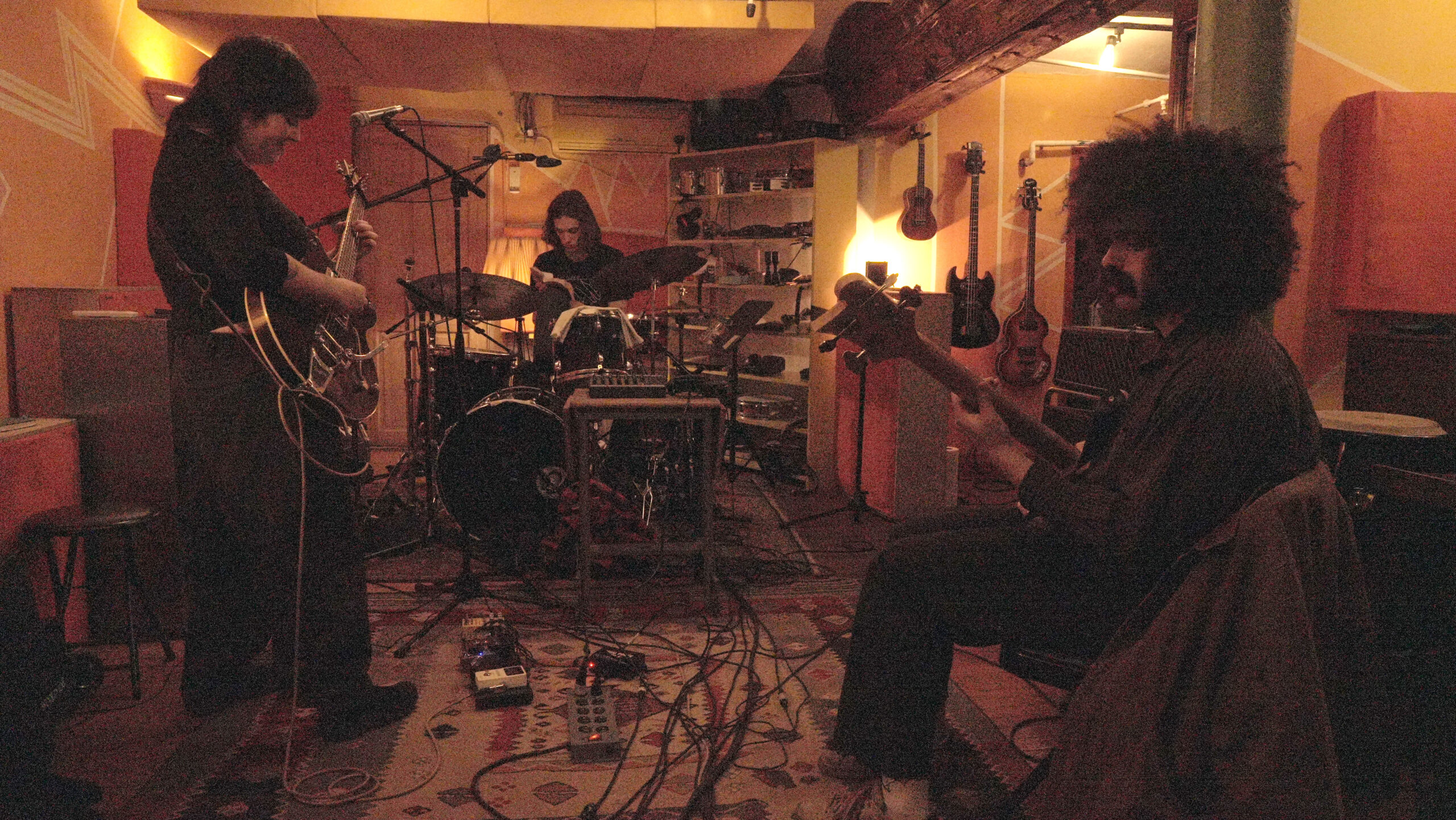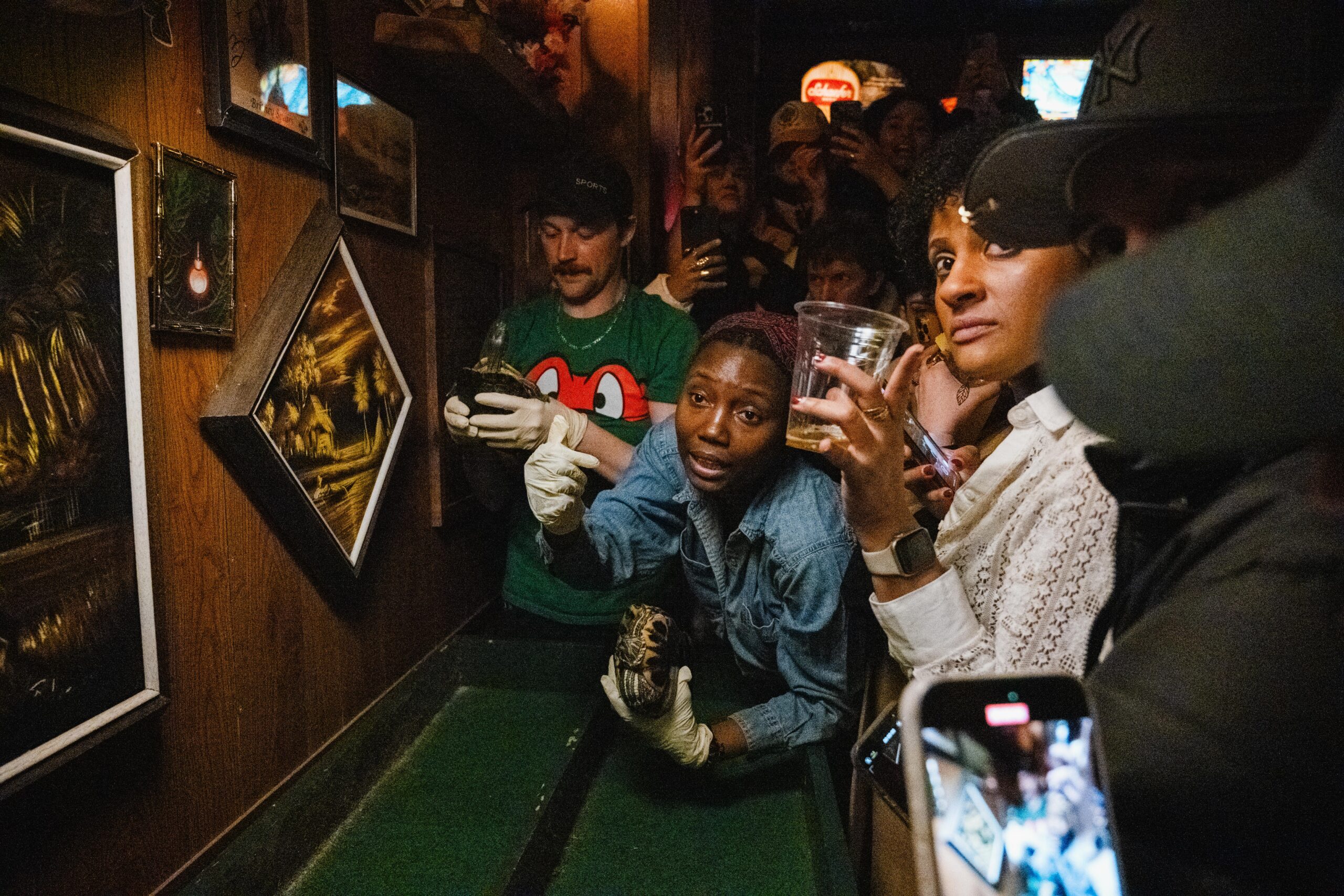Step into the University Dining Commons, and you’re welcomed by large, vibrant screens that depict maps of New York State. The maps highlight areas from which The New School sources various foods, ranging from bottled tea to burger patties. A red dot located on Woodstock, New York, for example, represents Oliverea Maple Syrup, a family-run business that provides syrup for New Schooler’s pancakes.
The maps are part of what The New School says is its commitment to transparent and sustainable food sourcing. And evidently, TNS wants to approach food waste in an equally responsible manner. In April, the school will be partnering with the Institute of Culinary Education to host the Zero Waste Food Conference, an event focusing on methods for the sustainable production, distribution, consumption and disposal of food.
But The New School itself is in a transition, seeking solutions for how to best handle its own food waste.
Currently, all compostable, discarded food is handled by Action Carting, a company that specializes in environmentally conscious, non-hazardous waste collection. This also includes extra food that’s uneaten at the end of each day.
But Sustainability and Waste Management intern Apoorva Muthukumar is concerned about what ultimately happens to compost taken by Action Carting. “I don’t know where the compost is going even though I’ve tried to talk to the person in charge of our account,” she said. She worries that if students aren’t sorting food properly–removing meat products, for example–it won’t make it to the composting site.
“If there are bones they’re probably going to see one and throw the whole thing out,” she said.
Composting is one way that excess food is managed. Donating it is a second way. But that system, too, is in flux.
The New School once partnered with the Food Recovery Network, according to Jessica Roberts, former Director of Sustainability & Campus Operations. The non-profit organization works with college campuses to recover perishable foods that would otherwise be thrown away, and then redistributes them to people in need.
But logistical concerns associated with food safety and the incompatible schedules of The New School cafeteria employees and the Food Recovery Network food pickups has led The New School away from working with the Food Recovery Network this semester. The complications arose when the Dining Commons had food ready to donate but the Food Recovery Network wasn’t available to retrieve it, Roberts said.
Greg Herrera, Assistant Director of Business Operations, offered another reason for The New School’s break in partnering with the Food Recovery Network: interns.
“It was something that our prior group of interns had established. They were managing that relationship and now they’re gone,” Herrera said.
Herrera is referring to The New School Dining’s Sustainability Interns, who play a critical role in upholding The New School’s food sustainability mission. The interns, made up of both New School students and graduates of other universities, have a variety of critical responsibilities. They’re in charge of collecting and analyzing data for the Real Food Challenge, a strict set of guidelines that ensure responsible food procurement practices. And, Herrera says, while last year’s interns were actively involved with the Food Recovery Network, the 2016-2017 interns are focusing on establishing new, more enduring connections for food donations.
Muthukumar, a Pace University graduate and 2016-2017 intern, has been working to secure a new partnership for food donations since the beginning of the school year.
“We need to do preliminary research based on how much food people are eating at each station versus how much we are making,” explained Muthukumar.
The New School Free Press was unable to gain access to any specific research data on food waste.
Herrera said via email that, “The program, though run by our intern, utilizes a software that is proprietary to Compass Group. They do not give us permission to disclose that information, since they own it, and it is at their discretion to do so.”
Compass Group is a corporate food service management company that owns Chartwells, the company overseeing The New School’s dining program.
“It’s not easy to give away food, which has amazed us, because there’s people who need it, and you can’t just simply go give it them,” Herrera said.
In the meantime, Muthukumar is working with the New York Common Pantry to initiate the coordination of regular food pickups from The New School.
Despite these frustrations, Herrera and Muthukumar remain optimistic that The New School will soon form a new partnership to aid in the donation of leftover food.
“There are a lot of rules and regulations, but we try to work through them. We don’t use that as a deterrent, we just try to work around that, and find a partnership that works for us,” Herrera said.
Photo by Julia Himmel.

